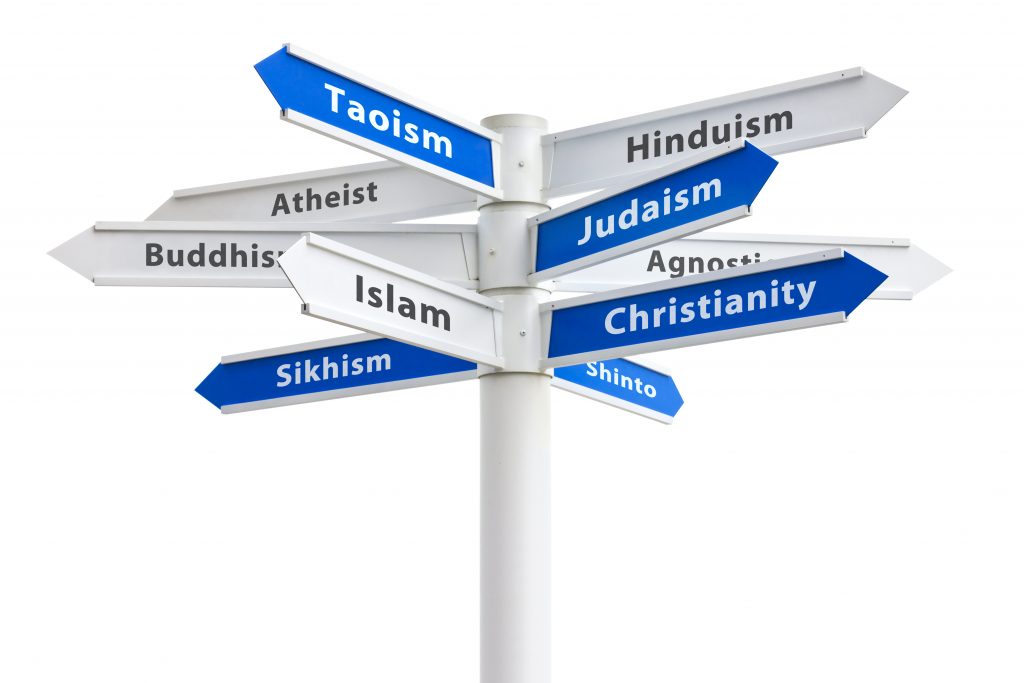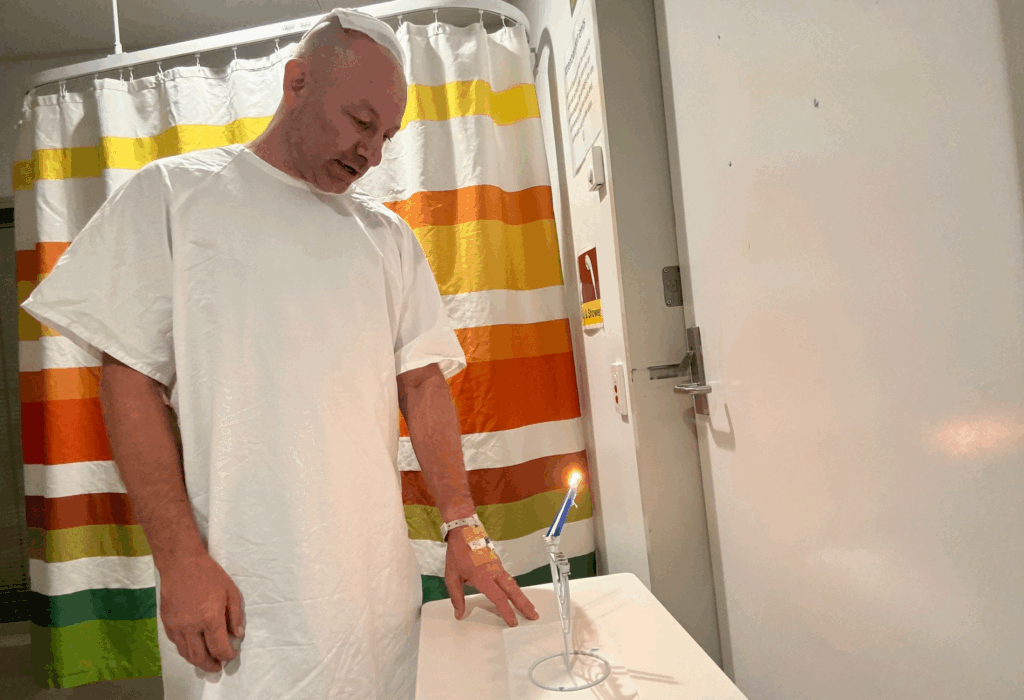RESOURCES
Submission to the Parliamentary Joint Committee on Human Rights’ Inquiry into Religious Discrimination Bill 2021 and related bills
December 24, 2021 | AIJAC staff

Executive Summary
The Australia/Israel & Jewish Affairs Council (AIJAC) appreciates the opportunity to make a submission to the Parliamentary Joint Committee on Human Rights’ Inquiry into Religious Discrimination Bill 2021 and related bills.
AIJAC welcomes Commonwealth legislation that makes it unlawful to discriminate based on religion. Within the Jewish community, there is very acute recognition that the ability to freely practise religion cannot be taken for granted. There have been many times in Jewish history when individuals have been prevented from, or persecuted for, the practice of Judaism. The Jewish community continues to enjoy full freedoms in Australia and AIJAC firmly hopes the Religious Discrimination Bill 2021 and related bills will protect these freedoms for Australian Jews in the future.
This submission will make the following points:
- Welcome the extensive effort by Government, through the process of consultation and exposure drafts, to develop an effective and fair Commonwealth racial discrimination legal framework.
- Commend the Government on improvements made to provisions around boards of management at religious institutions.
- Outline AIJAC’s views on statements of beliefs.
AIJAC also acknowledges the role of Peter Wertheim, co-Chief Executive Officer of the Executive Council of Australian Jewry, who has capably reflected the views of the Australian Jewish community to the Commonwealth during the drafting of this Bill.
AIJAC is the premier independent public affairs organisation for the Australian Jewish community. AIJAC conveys the interests of the Australian Jewish community to government, media and other community organisations. AIJAC seeks to participate in public debates in Australia on a range of issues of concern, including, but not limited to, strategic affairs, Middle East affairs, multiculturalism and community affairs.
Part 1 – Need for religious discrimination legislation
Australia is a successful multi-ethnic, multicultural and multifaith country. Faith communities play an important role in Australian society, strengthening lives, supporting those in need, and providing a sense of spirituality and belonging for so many Australians.
Prime Minister Scott Morrison aptly referenced one of the great contemporary Jewish thinkers, the late Rabbi Lord Jonathan Sacks, in his speech on the introduction of the Religious Discrimination Bill 2021. Prime Minister Morrison told the House of Representatives that Rabbi Sacks had said, “the state can deliver much – health, welfare, education, defence and the rule of law. But I would agree with him when he argues that the state is not the author of the active citizenship that creates the face-to-face care and compassion that constitutes the good society.”
As expressed in an earlier AIJAC submission responding to the Second Exposure Draft, this organisation supports the existence of a religious discrimination legal framework to complement existing protections around sex discrimination, racial discrimination, disability discrimination and age discrimination.
The Australian Jewish community is small compared with some other faith communities in the country. However, the Jewish community has specific needs in terms of education, aged, health and disability care, as well as religious and cultural needs. These needs are largely met by community-based institutions and cannot be easily substituted by services offered by secular or other faith-based bodies.
The founders and current directors of these institutions provide religious-specific services to members of the Jewish community, for example, schools that teach Jewish practice and observe Jewish holidays or the provision of kosher food and unique cultural programs in aged care settings, which are not relevant to other Australians.
The introduction of the Religious Discrimination Bills will ensure these institutions can continue operating in the same way they have been doing, in some cases, for generations. That is, in accordance with the Jewish faith to promote spiritual and physical wellbeing, community belonging and to care for the vulnerable.
AIJAC, as a national organisation, also welcomes the Commonwealth Government’s effort to ensure that all Australians, regardless of where they live, are covered by religious discrimination laws. The same rights and freedoms should be available to every Australian living in every state or territory. This is not currently the case.
Part 2 – Faith-based governance of certain institutions
In AIJAC’s submission to the Second Exposure Draft, concerns were raised about the management or governance of faith-based hospitals, aged care facilities, accommodation providers and disability service providers. These centred on the lack of protection for these institutions to appoint individuals to governance roles, that is, not necessarily employees, who share the religious beliefs underpinning the institutions they will govern.
In that submission, AIJAC outlined concerns that the Second Exposure Draft did not provide guarantees that the institutions listed would be free to appoint directors, controllers or administrators of a particular faith. To quote from that submission:
AIJAC submits that organisations should be permitted to continue the practice of having membership of boards comprised of members of the faith community which is being served as they see fit.
AIJAC welcomes, therefore, the inclusion of clause 43 of the Racial Discrimination Bill 2021 that appears to allow voluntary bodies (defined in section 5) the freedom to appoint directors, controllers or administrators of a particular faith. The result of this will be faith-based hospitals, aged-care facilities, accommodation providers and disability service providers being legally protected if they wish to ensure the individuals responsible for ethos and governance reflect and/or are closely connected to the faith communities these institutions were established to serve.
As an addendum to this point, AIJAC notes that the submission from the Executive Council of Australian Jewry (ECAJ) makes recommendations around clarifying clause 42 and clause 43 of the Racial Discrimination Bill 2021 to avoid these institutions being required to amend their constitutions merely to maintain the status quo. AIJAC supports the ECAJ’s practical and logical suggestion that clauses 42 and 43 be amended to permit that membership of a particular institution, or membership of an institution’s board or directors, be restricted to people of a particular faith.
Part 3 – Statements of belief
In Australia, religious-based bodies should be legally protected to publish the beliefs on which they were established or operate. Similarly, individuals should be able to exercise their right to express their religious beliefs. So many of the world’s religions – Judaism included – are based on making the world a better place, caring for those less fortunate and loving your neighbour as yourself, so it must be said that, in general, these statements strengthen our communities and enrich our lives.
In the limited examples where these statements do not contribute to community cohesion or may be unpleasant to those who don’t share that faith, a responsibility exists for those with genuinely held religious beliefs to cause no harm, or at the very least, to minimise the harm caused by expressing their beliefs. AIJAC acknowledges that clause 12 of the Religious Discrimination Bill seeks to strike this balance in a legal sense.
As noted in the Explanatory Memorandum paragraph 67:
For clause 12 to apply, statements must be made in good faith and must not be malicious, or harass, threaten, intimidate or vilify a person or group of persons. In addition, the statement must be of a belief that the person genuinely considers to be in accordance with the doctrines, tenets, beliefs or teachings of that religion or belief that the person genuinely considers to relate to the fact of not holding a religious belief … The provision protects the ability of individuals to explain, discuss, share and express their fundamental beliefs.
This clause attempts to offer an appropriate balance between protecting the rights of individuals to express their faith freely or organisations to operate in accordance with the views of their membership, and the right of all individuals to live free from vilification or harassment.
However, while the Government is seeking to legislate protections for statements of belief, the other side of the coin is a responsibility for people of faith to avoid making statements that may disparage or disrespect those who don’t share those views. This is a moral obligation that should not require further legislation. Instead, strong leadership is required from community and political leaders alike to call out any public statements that do not show respect to other Australians.
In his speech to Parliament, Prime Minister Morrison raised the contemporary challenge of “cancel culture” for people of different religious traditions. He said: “We have to veer away from the artificial, phoney conflicts, boycotts, controversies and cancelling created by anonymous and cowardly bots, bigots and bullies”.
Clause 12 of the Religious Discrimination Bill protects the rights of Australians to publicise their beliefs in a manner that will, hopefully, cause no harm to those who do not share that faith. This will protect Australians with religious beliefs from, as the Prime Minister said, “artificial, phony conflicts, boycotts, controversies and cancelling created by anonymous and cowardly bots, bigots and bullies.” For those seeking to cause harm under the guise of an expression of faith, they are likely to be caught by the qualifiers in clause 12.
Conclusion
AIJAC thanks the committee for the opportunity to make this submission on this important issue. Australia’s history and reputation as a welcoming society with strong liberal, democratic values must never be taken for granted. This bill also offers protection to Australians of religious faith that is similar to the protections offered to Australians with other attributes.
While antisemitism does, unfortunately, persist in Australia at relatively low levels, Australia’s Jews continue to be free to express their faith and openly practise traditions that bind them to generations past. This Bill and the associated amendments legally enshrine those protections for Australia’s Jewish and other faith-based communities into the future.
Submitted by Dr Colin Rubenstein AM
Executive Director, AIJAC
Research by Naomi Levin
Senior policy analyst, AIJAC





